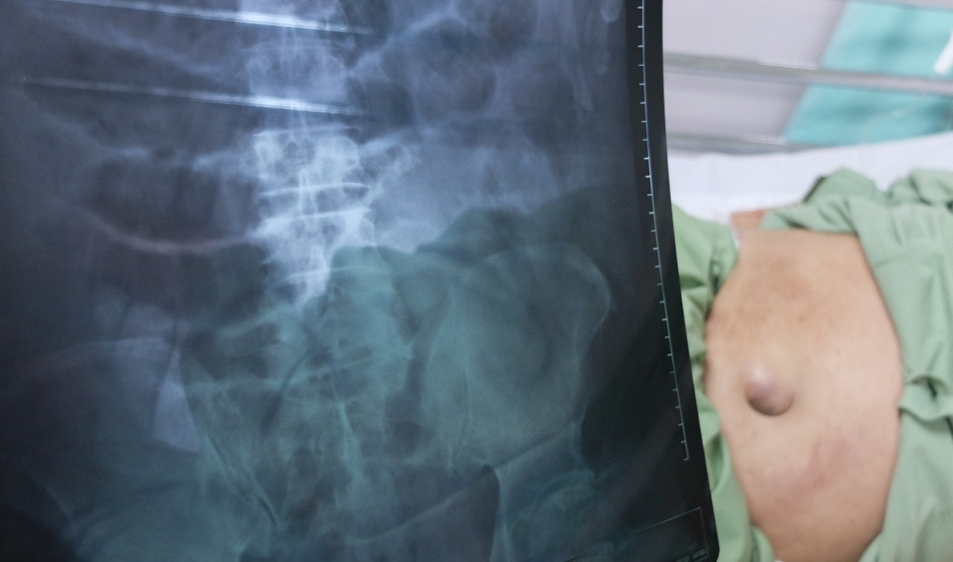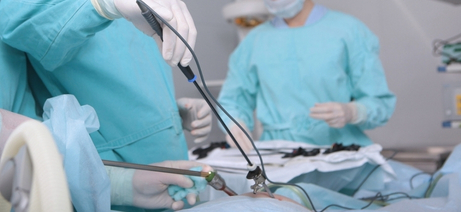Incisional Hernia

Incisional Hernia Treatment & Surgery in Pune & Mumbai
Understanding Incisional Hernia
An incisional hernia happens when tissue or a portion of the intestine bulges through a weakened area in the abdominal wall at the site of an old surgical incision. This may happen after any surgery of the abdomen, particularly if the wound was not properly healed. It can develop months or even years following surgery and can increase in size over time.
Symptoms and Discomfort Associated with Incisional Hernia
The most frequent indication of an umbilical hernia is a visible bulge close to the navel. The swelling can be more noticeable when coughing, straining, or standing up. Mild pain is felt by some, but others can develop severe pain or tenderness, particularly if the hernia becomes incarcerated or strangulated, compromising blood flow to the intestine.A visible bulge at or close to a former surgical incision is a frequent symptom of an incisional hernia. The bulge can be more noticeable when one stands up, coughs, or lifts a heavy load. Some people may have minimal pain, whereas others will have recurring pain, pressure, or tugging sensation on the affected part. If the hernia is trapped, painful, nausea, and vomiting could be signs of a strangulated hernia that needs immediate attention.

What Causes an Incisional Hernia?
Surgical weakening of the abdominal muscles is the main reason for an incisional hernia. Obesity, chronic coughing, heavy lifting, pregnancy, or infection at the operation site raise the risk. Medical conditions that put pressure on the abdominal wall, like straining to pass stools several times a day, also lead to the formation of this type of hernia.
Surgical Treatment Options for Incisional Hernia
Because incisional hernias enlarge with time and will not heal by themselves, they must be operated on. Laparoscopic herniorrhaphy is a minimally invasive surgery where small cuts are made and a piece of mesh is inserted to strengthen the belly wall. In more extensive or complicated hernias, an open procedure can be used to support the damaged area so that it does not recur. The procedure of choice is based on the size of the hernia, the health of the patient, and the danger of complications.

Why Early Treatment is Essential
If not treated, an incisional hernia may become larger and result in complications like strangulation, when the tissue of the hernia becomes devoid of blood supply. Timely medical intervention avoids emergency conditions and provides a more uneventful recovery with less postoperative complications.
FAQ'S
An incisional hernia occurs when tissue or organs push through a weakened area in the abdominal wall at the site of a previous surgical incision. This type of hernia is a common complication following abdominal surgery.
A healthcare provider will perform a physical examination, often asking you to stand and cough to observe any bulge. Imaging tests such as ultrasound, CT scan, or MRI may be used to confirm the diagnosis and assess the hernia's size and contents.
No, incisional hernias do not heal without treatment. While some may remain asymptomatic for a period, they often enlarge over time and can lead to complications. Surgical repair is the definitive treatment.




